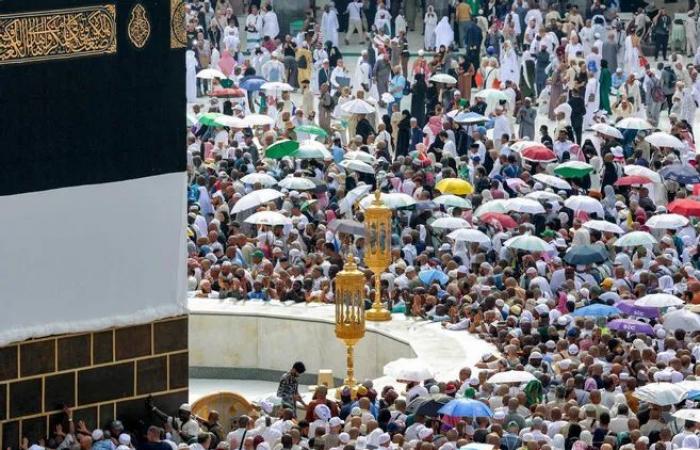More than a thousand pilgrims died from the consequences of scorching heat during the hajj, the great Muslim pilgrimage to Mecca, Saudi Arabia announced on Sunday evening.
Saudi Arabia announced on Sunday evening June 23 the death of 1,301 pilgrims during the hajj, the great Muslim pilgrimage to Mecca which took place in scorching heat.
“Unfortunately, the death toll reached 1,301, 83% of whom were not allowed to perform the hajj. They had traveled long distances under the sun, without adequate shelter or comfort,” the official Saudi Press Agency reported SPA. The deceased come from more than ten countries and some governments continue to update their tolls. Diplomats from Arab countries told AFP that 658 were Egyptians, including 630 without official authorization for the pilgrimage. A large number of deaths are due to the heat, according to these diplomats.
“Error of appreciation”
The hajj was held from June 14 to 19 in the west of the kingdom. Until Sunday, Riyadh had not publicly commented on these deaths or provided a report. On Friday, a senior Saudi official nevertheless provided AFP with a partial toll of 577 deaths during the two most intense days of the hajj: June 15, when pilgrims gather for hours on Mount Arafat, and June 16. June, when they participate in the “stoning of the devil” ritual in Mina. This official defended the authorities’ reaction: “the State did not fail, but there was an error of assessment on the part of people who did not measure the risks.”
Saudi Health Minister Fahd Al-Jalajel on Sunday described the management of the great Muslim pilgrimage this year as a “success”, according to SPA. He said the health system had “provided more than 465,000 specialized treatment services, including 141,000 services to those who have not obtained official permission to perform the hajj.” “The health system has treated many cases of heat stress this year, and some people are still being treated,” according to the same source. “Among those who died, there were several elderly and chronically ill people.” Riyadh did not specify the number of deaths due to the heat.
Pillar of Islam
The hajj is one of the five pillars of Islam that every Muslim who can afford it must perform at least once in their life, at a period determined by the Muslim calendar, based on lunar cycles. According to the authorities, 1.8 million pilgrims participated this year, most of them from abroad. Each year, tens of thousands of faithful attempt to participate in the pilgrimage without having the necessary permits, paid for and granted according to quotas, which give access in particular to air-conditioned facilities. The rituals took place under very high temperatures, which reached 51.8 degrees Celsius at the Grand Mosque in Mecca, Islam’s holiest city in western Saudi Arabia.
The date of the hajj advances by approximately eleven days each year in the Gregorian calendar. With climate change, heat stress on pilgrims will exceed the “extreme danger threshold” between 2047 and 2052 and from 2079 to 2086, “with increasing frequency and intensity as the century advances”, according to a study published in 2019 in the journal Geophysical Research Letters. Last year, countries reported more than 300 deaths during the hajj, mostly Indonesians.
Anti-Semitic rape of a 12-year-old girl in Hauts-de-Seine: three young suspects in police custody
With AFP






